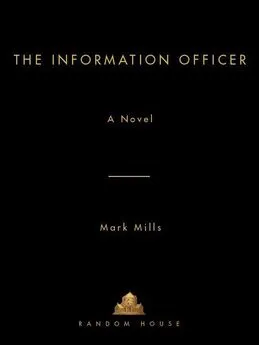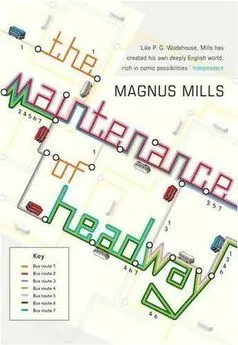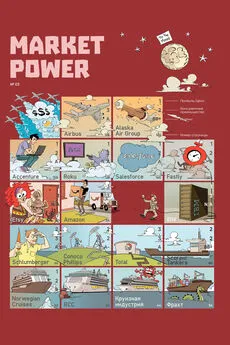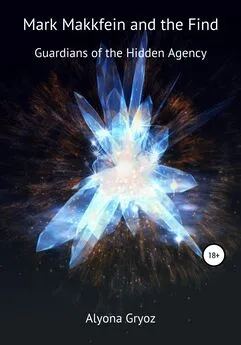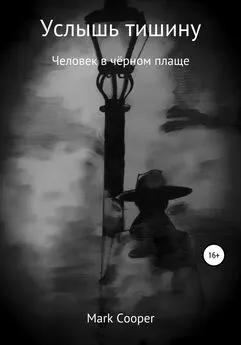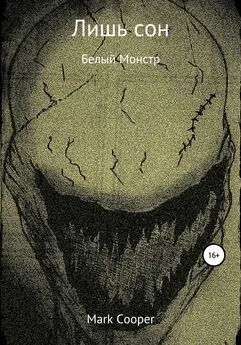Mark Mills - Amagansett
- Название:Amagansett
- Автор:
- Жанр:
- Издательство:неизвестно
- Год:неизвестен
- ISBN:нет данных
- Рейтинг:
- Избранное:Добавить в избранное
-
Отзывы:
-
Ваша оценка:
Mark Mills - Amagansett краткое содержание
Amagansett - читать онлайн бесплатно ознакомительный отрывок
Интервал:
Закладка:
Conrad scrambled aboard. Moving fast, he slipped the oars into their locks and began to row gently, still standing, setting his stroke. His eyes were fixed on Rollo, chest-high in the water, doing his best to steady the dory. There was no need for Conrad to glance over his shoulder at the rearing seas. Everything could be read in Rollo’s face as he waited for a slatch between two series of waves.
The next few seconds were critical. Rollo’s judgment would determine whether they went off cleanly, or whether they filled up, broached to, or—God forbid—pitchpoled.
‘Pull!’ yelled Rollo, pushing off and struggling aboard in one graceless movement.
Conrad arched his back into the stroke. The dory slid up the face of the first capping sea. It broke over the bow, dowsing them, but Conrad was already well into his second stroke, shifting his weight, the oars biting deep, driving them down into the trough. His third stroke, long and measured, propelled them up and over the face of the next wave before it broke. They knew they were safe now unless Conrad popped an oar or the gods tossed a rogue wave their way. But the gods were in a good mood and Conrad hadn’t popped an oar in almost a decade.
Clear of the surf, Rollo could now concentrate on paying out the net, pitching the coils of lead line over the gunwale, the cork line dragged right along with it. Conrad settled down on to the thwart and eased into his long distinctive stroke. Carrying so little twine, he soon began to turn the dory in a short clean arc. The thicker mesh of the bunt began passing through Rollo’s hands. This reinforced middle section housed the bag at the very center of the net, marked by a cork flag buoy. As soon as the bag was set Conrad swung the dory parallel to the beach.
Rollo paid out the rest of the net until the offshore wing narrowed to a manila line coiled at his feet. This was Conrad’s signal to turn again and begin their run to shore.
Speed and timing were everything when approaching the surf line. If Conrad lost momentum the dory would slip back into the trough, floundering at the mercy of the chasing waves. If he came in too fast the dory would hurtle down the face of a breaking sea, plant her bow in the sand and pitchpole forward, jackknifing over in one brief, heart-stopping moment, crushing her occupants.
Rollo was aft, his face a mask of concentration, applying just enough resistance to the net line whipping through his hands to keep the dory’s stern headed seaward. If Conrad misjudged, coming in too fast, Rollo could yank on the line, stalling the boat’s headway, buying them another shot at a clean approach. The line would skin his palms in an instant, but it was a small price to pay to avoid pitchpoling.
As it was, Conrad committed them to the surf on the back of a large, lazy sea that lowered them kindly into the maelstrom of white water. He boated the oars and seized the thwart to brace himself. As soon as he felt the jolt of the dory stranding he was over the port side, Rollo over the starboard. They seized the gunwales and hauled the boat up the beach, assisted by the next breaking wave.
Exhausted, clinging to the dory for support, they laughed. It always felt good when they judged the seas correctly, going off and coming back without mishap.
They left the net to fish for a while, buying themselves time to recover from their exertions and share a smoke. Conrad had relished the last couple of days, the timeless, almost biblical simplicity of the fishing—two friends, the beat of the sea, a net cast from a boat then hauled up on to the sand—no machinery, nothing to fall back on besides their experience and brute physicality.
After ten minutes or so they drew the offshore wing up on to the beach, closing the net. The semicircle of cork floats danced merrily on the building chop, the flag buoy at the apex not even a hundred feet beyond the breakers. They had yet to see any signs of fish. In all likelihood, the building heat combined with the shift in the longshore set had driven them into the deeper water beyond the bar.
‘You okay?’ asked Conrad.
Out of superstition, they never spoke when they sensed they were about to make a dry haul. But there was something else in Rollo’s silence, the manner in which he mistrustfully regarded the ocean. He made to speak. It wasn’t that he checked himself so much as gave up, unable to find the words.
‘Meet you halfway,’ said Conrad. He headed off down the beach to the Model A and unlashed the onshore line from the back of the truck. They started to haul on their respective ends of the net, hand over hand, in unison.
Conrad felt the weight almost immediately, a particular kind of weight—dead weight—not the twitching load of fish breaking for deep water and coming up against the twine. A dead porpoise, perhaps. Another thought flashed through his mind. He shut it out, cursing himself for even considering it, for lending it any kind of credence or life.
He glanced along the beach and knew immediately that Rollo had also sensed something amiss. His rhythm had slowed and he was staring intently at the shrinking half-circle of water, their small bite of ocean enclosed by the net. Still no visible signs of fish. Just the inert load being drawn towards the crashing surf. Short of abandoning the haul, there was nothing either of them could do to alter the outcome.
They had been drawing ever closer together, measured steps to keep the bag centered, coils of sodden net snaking behind them on the sand. Only ten or so yards of beach divided them when a big sea caught hold of the bag, raising it from the bed. They hauled speedily, taking up the slack.
Conrad glimpsed a streak of white—the belly of a large fish?—buried behind the glassy face of the capping wave. It was lost to view as the wave broke, collapsing in a thunderous tumble of water.
The wash receded to reveal a body snarled in the bag—a woman, long blonde hair braided with seaweed, sand crabs scurrying, sea robins flapping, drowning in air. Then she was engulfed by the next breaking wave. Instinctively, Conrad and Rollo used the momentum to drag the bag up the beach, beyond the wash.
Conrad stared, deaf to Rollo’s religious mutterings and the crash of the surf.
The woman was lithe and long-limbed, wearing a navy blue swimsuit. She was lying face down, her right foot cocked behind her left ankle, her right arm tight against her body, the left extended above her head, the fingers of her hand slightly splayed as if reaching for something.
She moved. Conrad hurried forward. She was definitely moving. Seizing her cold, pale shoulder, he turned her over. An enormous monkfish bucked and flailed beneath her. The bloated lips of its grotesquely broad mouth seemed to be reaching for the woman’s, lunging for an embrace. As for the woman, her lips were blue, starved of oxygen, of life.
Conrad delved into the bag, seized the mollykite by the tail, and in one violent movement swung the creature high out over the breakers. He remained staring out to sea.
‘Conrad,’ said Rollo helplessly, looking for guidance.
Conrad finally turned. ‘Help me take her out.’
They peeled the net off the woman as best they could, swept the sand crabs from her face and body, and drew her out by the feet. She was completely rigid, unbending, as if frozen or hewn from a block of white marble.
Her hair snagged in the mesh. Rollo proffered his jackknife, but Conrad ignored him, finally freeing the woman from the clutches of the seine.
Rollo seemed reluctant to touch the woman again, so Conrad took her in his arms and carried her up the beach.
Two
Tom Hollis lit another cigarette and turned to the sports pages. The Amagansett Bonackers had defeated the Hampton Bays by a score of 9-7 in Sunday’s game. Some fellow called Lambert had gone four for five, knocking in two runs, and his batting was described as ‘spectacular’.
‘About what?’ asked a gruff voice.
Hollis looked up to see the considerable bulk of Chief Milligan filling the door of his office.
‘About what?’ said Milligan, repeating himself.
Hollis frowned, still unsure.
‘You said, “Who gives a damn?”’ explained Milligan.
‘I did?’
Christ, not only was he talking to himself now, he didn’t even know it.
‘Oh, you know, the baseball.’ He flapped the East Hampton Star vaguely in Milligan’s direction.
‘My boy scored the winning run in the twelfth.’
He should have remembered. He did remember. Young Tim played for the Bonackers. Southpaw. Swing like a caveman killing his lunch. It was coming back now. All too late. ‘Think you could give a damn about this?’ said Milligan, advancing. He slid a sheet of paper across the desk. Hollis scanned it.
His first thought was ‘There goes my lunch.’
Hollis turned left on to Newtown Lane from the East Hampton Town Police Department. From here it was pretty much a straight run east of two miles into Amagansett, but as he cleared the town limits he swung the patrol car south on to Skimhampton Road, opting for the back roads.
He reached for the bottle of Gordon’s in the glove compartment, steering with his knees while he unscrewed the cap. A bracing shot, he persuaded himself, because of what lay ahead. He didn’t allow himself to recall the numerous other corpses he had confronted in his career without the aid of liquor.
The beach landing at the end of Atlantic Avenue was deserted except for a black sedan with New York City plates. Hollis pulled on his cap, squinting against the sun and the dust whipped up by the dry, stiff breeze. Even the beach appeared empty. Strolling down on to the sand he saw a gathering of vehicles and men about half a mile to the east through the thin haze of mist thrown up by the breakers. Half a mile. He’d only walked thirty yards and already his shirt was clinging to his chest. He removed his jacket and set off along the shore.
The body lay beneath a faded green canvas tarpaulin in the shade of a large truck, some kind of military transport converted for beach use. A dozen or so fishermen stood about talking in huddles. A few curious vacationers hovered on the fringes, morbid onlookers.
‘Deputy Chief Hollis,’ he announced, approaching the group of fishermen nearest the body. Amagansett fell within the jurisdiction of East Hampton town, but he rarely ventured over here and didn’t recognize any of the characters gathered around regarding him coldly. He didn’t blame them. He couldn’t abide small-town cops himself.
He removed his cap and wiped his brow with the back of his sleeve. ‘Who found her?’
One of the men nodded over his shoulder. Thirty yards down the beach, a fisherman, tall and big-boned, was loading a net into a surfboat hitched to the back of an old Model A flatbed. Another fellow—slighter, wirier, with lank, bleached hair—was helping him.
Hollis glanced back at the tarpaulin. ‘Don’t worry,’ said one of the younger men, thin lips buried in a scraggy beard worn to conceal a weak chin. ‘She’s fresh. A day, not even.’
His reluctance to take a look was that transparent? Crouching, Hollis folded back the tarp.
Death had not completely obscured her beauty. Blonde tresses matted with weed framed an oval face that descended to the delicate point of her chin. Her lips, though blue, were arched and full. Faint smile lines flanked her mouth. Her nose was sharp, her eyes wide-set and closed.
He resisted the temptation to force open the lids. Green, he guessed. He’d find out soon enough. There was a small scar etched into her left eyebrow, and pierce-marks in her ears. A beautiful young woman, her life cut short after no more than, what, twentyfive years? Thirty, maximum.
Читать дальшеИнтервал:
Закладка:

